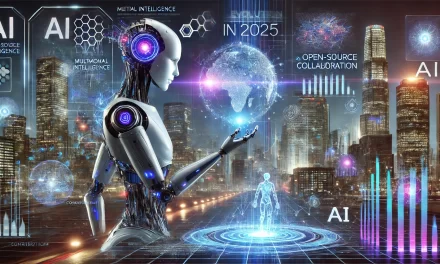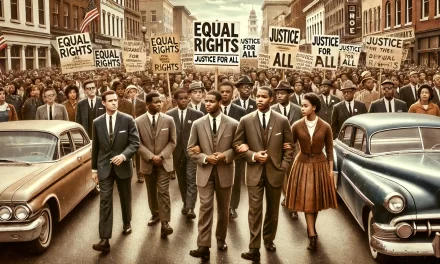By Jeff Cooper
The Crisis of Accountability in American Politics and Media
In an age where artificial intelligence can instantly analyze data, cross-reference statements with established facts, and identify inconsistencies in real-time, one might wonder: Why aren’t we using this technology to cut through the fog of misinformation that clouds our political discourse? The technology exists to fact-check statements as they’re being made, yet our political and media systems seem resistant to implementing such transparency tools. This resistance reveals deeper truths about how information power structures operate in our society.
The Technical Possibility vs. Institutional Resistance
AI systems today can:
- Compare statements against vast databases of verified information
- Detect patterns of deception across multiple sources
- Provide context and nuance almost instantaneously
- Flag inconsistencies between current claims and previous statements
Yet despite these capabilities, both political institutions and media organizations have been slow to integrate real-time AI fact-checking into their operations. This isn’t a technological limitation but an institutional choice.
The Sports Replay Paradox
Consider this revealing contradiction: In professional sports like basketball and football, we’ve institutionalized truth-seeking through replay systems. When a crucial call is questioned in the NBA or NFL:
- The game literally stops for officials to review video evidence
- Multiple camera angles are analyzed in real-time
- The evidence is often displayed on giant screens for all spectators to see
- A correction is made immediately if the original call was wrong
- Both teams and fans accept the revised truth, even when it hurts their side
This happens without advanced AI—just basic replay technology that’s been available for decades. The contrast with our political discourse is striking. The same society that demands absolute accuracy for whether a ball touched a line refuses to implement even basic fact-checking mechanisms for claims that affect national policy, public health, or democratic integrity.
If we can pause a championship game to ensure the correct call is made about a fumble or a three-pointer, why can’t we apply similar standards to information that shapes our collective future? The answer lies not in technological limitations but in the willingness to prioritize truth over advantage.
Why the Resistance Exists
Political Self-Preservation
Politicians across the spectrum benefit from narrative flexibility. The ability to shape, reshape, and sometimes distort reality serves political purposes that transcend party lines. Real-time fact-checking would create an environment where:
- Campaign promises would be immediately contextualized against feasibility data
- Historical positions would be instantly recalled and compared
- Statistical claims would be verified before they could take root in public consciousness
- Rhetorical hyperbole would be distinguished from literal claims
For many political figures, this level of transparency would fundamentally alter their ability to control narratives and mobilize support.
Media Economic Models
Traditional media operates within economic models that often prioritize engagement over accuracy. The time gap between a sensational claim and its eventual fact-checking creates space for:
- Higher viewership/readership through controversy
- Multiple news cycles from a single story (the claim, the reaction, the fact-check, the analysis)
- Partisan interpretation which builds loyal audience bases
- Commentary that fills airtime and generates content
Immediate AI fact-checking would compress these revenue-generating cycles and potentially reduce audience engagement that thrives on uncertainty and debate.
The Power of Ambiguity
Both political and media systems benefit from information ambiguity. When facts are contested or unclear, it creates space for:
- Plausible deniability
- Appeal to different constituencies with different versions of reality
- Shifting positions without acknowledging changes
- Creating false equivalencies between verified facts and unsubstantiated claims
AI-powered fact-checking would significantly reduce this ambiguity zone where much of political maneuvering occurs.
The Cloud of Deception
The result is what we might call a “cloud of deception” – not necessarily because everyone involved is deliberately lying, but because the system itself is structured to delay clarity until after narratives have taken hold.
When deceptive or misleading claims are made, they spread rapidly through social and traditional media channels. By the time fact-checks arrive, the damage is done. The human mind tends to remember the initial claim more than its subsequent correction. This creates an environment where:
- Truth becomes perceived as partisan
- Facts become matters of belief rather than verification
- Public trust in all information sources erodes
- People retreat to information bubbles that confirm existing biases
The Missing “Front Street” Approach
In African American culture, there’s a powerful concept known as putting someone “on Front Street” – a practice of public accountability where someone making questionable claims is challenged to prove them in front of everyone. It’s a community-enforced truth mechanism that leaves nowhere to hide.
Consider how this might transform our political discourse: Instead of allowing politicians to make unverified claims that circulate through partisan echo chambers, we could create designated spaces for public verification. When major contested claims emerge – like allegations of election fraud – instead of endless debates across fragmented media, the person making the claim would be given a prominent platform with one condition: bring your evidence, face real-time verification, and let the public see the results.
For example, rather than letting election fraud claims circulate without direct examination, a better approach would be: “You have two hours of prime-time coverage to present all your evidence. Experts from both sides will analyze it in real-time, and the American people will witness the entire process.” This “Front Street” accountability would dramatically change the calculus for those making unfounded claims.
The absence of such spaces for high-stakes public verification reveals how our systems are structured to avoid rather than pursue conclusive truth in matters of public importance.
Breaking the Cycle
No one should have the right to make false claims without immediate accountability. When someone in a position of influence makes a statement that affects public discourse, they should be required to stand behind their words with evidence or face immediate correction.
Without this kind of accountability, we remain trapped in what amounts to a “conspiracy-truth-lie merry-go-round” – an endless loop that generates fear, division, and confusion. When false claims go unchallenged in the moment:
- The initial falsehood spreads rapidly through social media and partisan networks
- By the time fact-checks arrive, the damage is done and attention has moved on
- Those who believed the original claim often never see the correction
- Trust in all information sources erodes further
- Society becomes more polarized as different groups operate from different “facts”
The technology exists – even without advanced AI – to immediately display a person’s previous statements, show contradictory evidence, or provide relevant context. Video clips, transcripts, and documentation can be displayed in real-time. The obstacle isn’t technical capability but institutional willingness to implement such transparency.
The Path Forward
Despite institutional resistance, there are promising developments that could eventually break through these barriers:
- Consumer Demand: As audiences grow increasingly frustrated with misinformation, demand for real-time verification tools may force adaptation.
- Independent Platforms: Third-party AI fact-checking tools are emerging that operate outside traditional media and political structures.
- Education: Media literacy initiatives are helping citizens become more discerning consumers of information.
- Technological Innovation: AI tools are becoming more accessible to the public, potentially democratizing fact-checking beyond institutional control.
- Public Verification Forums: Creating designated spaces where major claims must be substantiated in front of the public with real-time analysis, similar to the “Front Street” concept.
The Asymmetry of Accountability
Perhaps the most troubling aspect of our current system is the stark asymmetry in how accountability functions across different levels of society. While ordinary citizens face swift and severe consequences for relatively minor infractions:
- A person who shoplifts or fails to pay taxes is quickly caught in the legal system
- Low-level employees who make mistakes often lose their jobs
- Regular citizens who break rules face immediate penalties
Meanwhile, those in positions of power operate under a different set of rules:
- Political leaders whose decisions lead to catastrophic loss of life—whether through war or pandemic mismanagement—rarely face personal consequences
- Corporate executives whose decisions harm thousands may receive bonuses rather than punishment
- Influential voices can make demonstrably false claims about vital institutions like Social Security, comparing them to Ponzi schemes, without facing proportional correction
This two-tiered system of justice fundamentally undermines democratic governance. When consequences only flow downward but never upward, we no longer live in a society governed by laws but by power.
Must Democracy Fall Before We See the Truth?
History provides us with a sobering pattern. The civil rights movement gained traction not through rational argument alone, but when images of peaceful protesters being brutalized with fire hoses, attack dogs, and batons forced America to confront uncomfortable truths. It took the visibility of suffering to create momentum for change.
Must we now witness the complete collapse of democratic norms before we collectively acknowledge the dangers of our broken information ecosystem? Will it take the final failure of our institutions before we recognize what has been lost?
The technologies and social mechanisms for truth-seeking exist. We have the capacity for AI-powered fact-checking, for “Front Street” public accountability forums, for immediate correction of falsehoods. What we lack is not the technical capability but the collective will to demand these systems be implemented.
The central question facing American society is whether we can find ways to make truth undeniable and accountability inescapable before we lose the democratic foundation that makes truth-seeking possible at all. Can we create the moral clarity and urgency needed for reform without first experiencing the full consequences of institutional failure?
The answer will determine not just the quality of our information environment, but the survival of democratic governance itself.
NEWS FROM THE OTHER SIDE – WHERE WE TELL THE TRUTH, NOT WHAT’S POPULAR.






Recent Comments